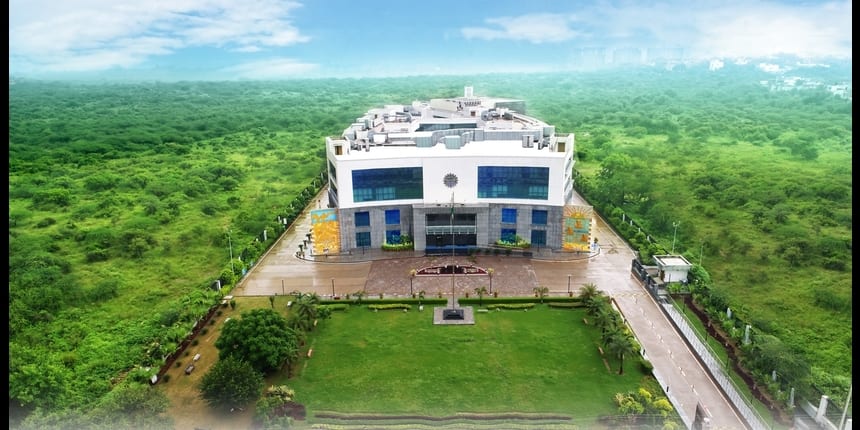AICTE bets big on engineering in Indian languages, undertakes translation of books in 12 languages
Anu Parthiban | July 16, 2022 | 03:03 PM IST | 4 mins read
AICTE has earmarked a budget of Rs 18.6 crores for developing the second-year course material in English and its translation into 12 Indian languages.

NEW DELHI: To make engineering accessible to students of all Indian languages, the All India Council for Technical Education (AICTE) is undertaking a massive mission to make technical courses available in non-English languages.
The AICTE organized a day-long conclave on Implementation of National Education Policy (NEP) 2020: Facilitating Engineering Education in Indian Languages’ on July 15, 2022 at the AICTE headquarters in New Delhi.
Also read | HECI soon, ARIIA scrapped, school rating from next year: Dharmendra Pradhan
The conclave aimed to encourage interactions with the Vice Chancellors of technical universities, directors of National Institutes of Technology (NITs) and professional bodies like the Indian National Academy of Engineering (INAE) to spread awareness about technical education in the Indian languages.
In alignment with the National Education Policy (NEP) 2020, AICTE aims to make engineering accessible to speakers of all major indigenous languages.
“Language is a powerful medium to reach the last person standing and give students the confidence to learn better in their own language. Language should not be a barrier in learning. After the first year, we are ramping up our translation and writing in Indian languages for second and further years of engineering. It is getting even more intense as subjects diversify and electives come in,” said Anil D Sahasrabudhe, Chairman, AICTE.
AICTE has earmarked a budget of Rs 18.6 crores for developing the second-year course material in English and its translation into 12 Indian languages.
Also read | 'Whole world will benefit': Dharmendra Pradhan lays foundation stone for IIT Kanpur's medical school
Simultaneously, on the University front, 40 institutes across 10 states namely Andhra Pradesh, Haryana, Karnataka, Madhya Pradesh, Maharashtra, Rajasthan, Tamil Nadu, Uttar Pradesh, Uttarakhand and West Bengal have come forward to start engineering education in one or more disciplines in six Indian Languages: Bengali, Hindi, Kannada, Marathi, Tamil and Telugu with a total intake capacity of 2,070 students in 2022-23, in this academic year.
Three expert panel discussions took place, featuring education stalwarts’ views on themes such as (i) Genesis and Importance of Education in the mother tongue, (ii) Role of the Universities/State Technical Education Department/Regulatory Bodies as an enabler to impart technical education in Indian Languages, and (iii) Future Road Map to make outcome-based education accessible in Indian languages.
Vice-chancellors, directors and professors of various universities, including IGNOU, IIT Kanpur, NIT Nagaland, Gujarat Technological University, and IIITDM Jabalpur, joined the program as panelists. The conclave also felicitated key persons across different states aiding AICTE in translating engineering books into Indian languages. During the program, students pursuing engineering courses (Computer Science and Engineering) in Indian languages such as Marathi, Telugu and Hindi, also shared their feedback, citing ease of study and learning concepts and terminology.
Also read | Can't compare JNU with single-subject institutes like IISc: JNU VC on NIRF ranking 2022
“Language and education are closely interlinked. NEP 2020 talks about education as well as language. We must encourage learning in the original language a child is born in. Moreover, in the past few years, we have trained 50,000 educators in universal human values who go beyond the curriculum and impart basics of humanity and civilization,” MP Poonia, AICTE Vice-Chairman said.
Notably, AICTE has initiated technical education in Indian languages in the year 2021-22 to decentralize the availability of study material in only English. About 20 institutions had started programs at undergraduate and diploma levels in six languages, Hindi, Marathi, Telugu, Kannada, Tamil and Marathi, across ten states in which 255 students were enrolled.
“Translations using digitized tools can help in speed and scale of the project, but the human mind is needed for review of the translation quality. We must prepare educators and principals to review them. 90 percent of our GDP does not come from the use of English, but from the local languages. More than teaching language, we must teach through language.
We must revive traditional knowledge systems and our Indian roots through language. I highly respect this initiative by AICTE,” said Chamu Krishna Shastry, Chairman, High Powered Committee for the Promotion of Indian Languages, Ministry of Education.
Also read | No retest, CUET 2022 candidates can write at any centre if they reach on time: UGC Chairman clarifies
“The non-availability of course material in Indian languages is the major hurdle in engineering in one’s own mother tongue, to tackle which we have started original book writing and translations. To provide the course material for engineering in Indian Languages, AICTE had introduced technical book writing and translation in 12 scheduled Indian languages – Hindi, Marathi, Bengali, Tamil, Telugu, Gujarati, Kannada, Punjabi, Odia, Assamese, Urdu and Malayalam,” shared Rajive Kumar, Member Secretary, AICTE.
Follow us for the latest education news on colleges and universities, admission, courses, exams, research, education policies, study abroad and more..
To get in touch, write to us at news@careers360.com.